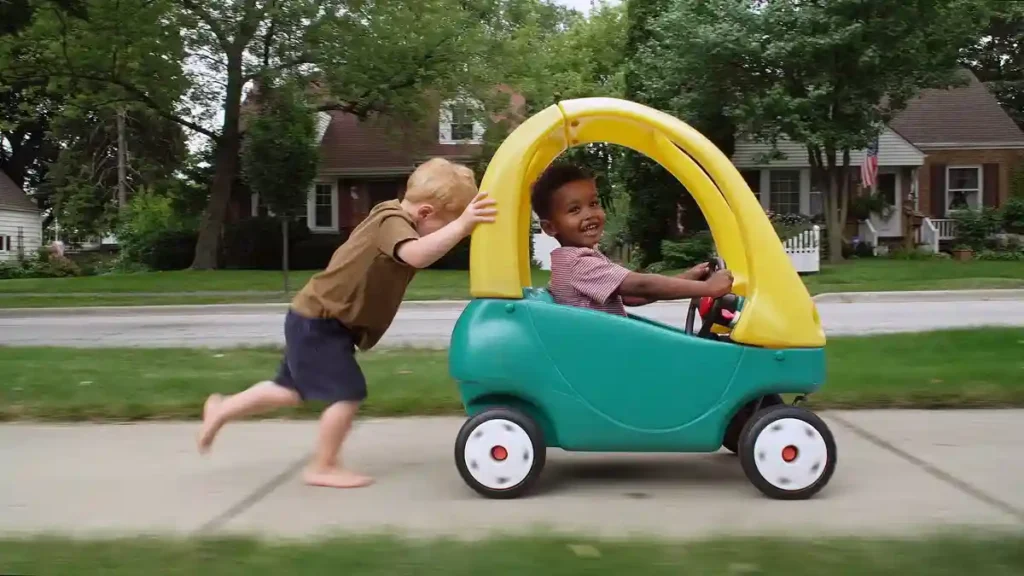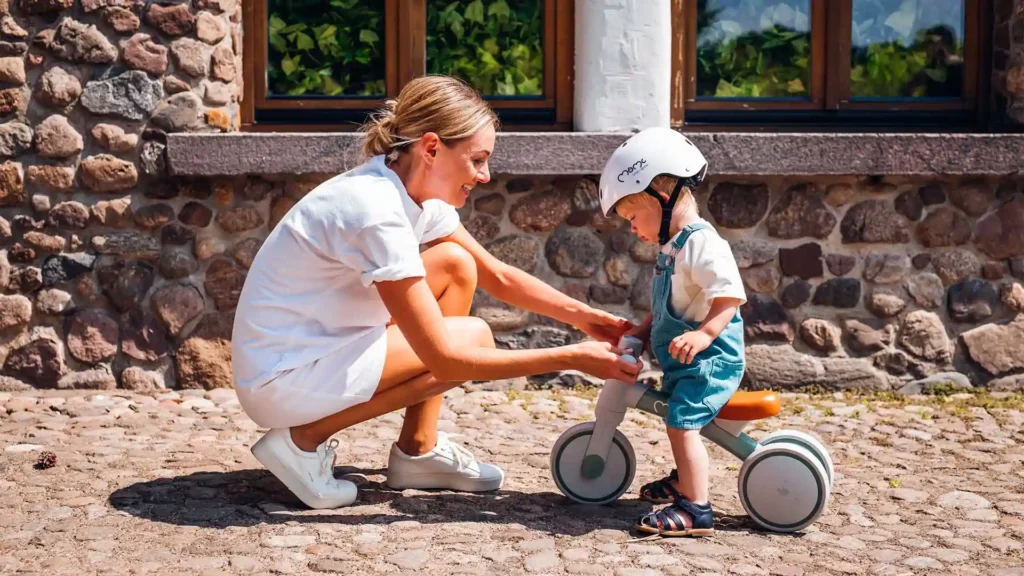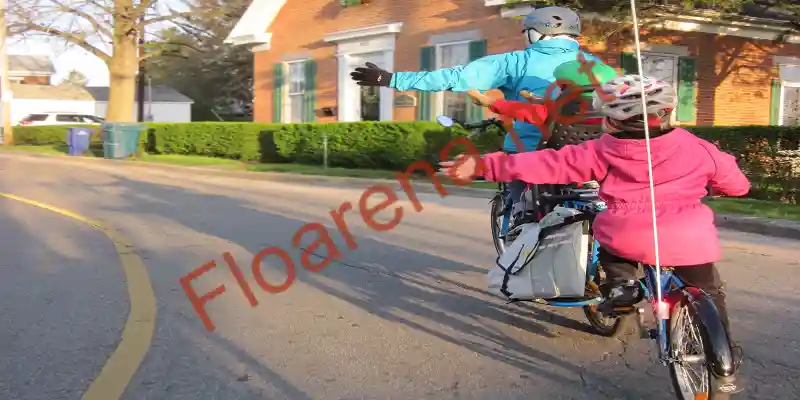Picking the right ride-on toy for your one-year-old can be hard. Many toys are in stores today. Parents want safe toys that help kids grow. This guide helps you pick the best ride-on toys for one-year-olds.
What Are Ride-On Toys?

Ride-on toys are small cars kids can sit on. Kids push with their feet to move forward. These toys come in many shapes and colors. They help babies learn to move and play.
Why One-Year-Olds Need Ride-On Toys
- Strong Legs: Kids build muscle power in their legs
- Better Balance: Children learn to stay steady while moving
- Hand Skills: Kids use their hands to steer and hold on
- Free Play: Babies learn to play by themselves
- Feel Good: Kids feel proud when they ride well
- Know Space: Children learn how big things are around them
- Think Better: Kids solve small problems while playing
- Play Together: Babies learn to share and take turns
When Is Your Baby Ready?

Most babies can use ride-on toys at 12 months old. But every child grows at their own speed. Look for these signs your baby is ready.
Body Ready Signs
- Sit Alone: Baby sits up without help for a long time
- Strong Body: Child has a strong back and belly
- Stand Up: Baby can hold their own weight standing
- Use Hands: Child can grab things and let go
- Walk Steps: Baby is starting to walk or cruise furniture
- Stay Steady: Child can keep balance while moving
Mind Ready Signs
- Listen: Baby follows simple words like “come here”
- Understand: Child knows that pushing makes things move
- Figure Out: Baby tries to solve easy problems
- Focus: Child can play with one toy for several minutes
- Want to Explore: Baby wants to see new places
Safety First: What to Look For
Safety comes before fun when picking ride-on toys. Here are the most important safety features to check.
Strong Building
- Won’t Tip: Toy stays upright when baby leans
- Safe Materials: No bad chemicals that hurt kids
- Smooth Edges: No sharp corners that can cut
- Wide Base: Bottom is wide so toy won’t fall over
- Good Wheels: Wheels stay on tight and roll smooth
- Right Size: Toy fits your child’s weight and height
Smart Design
- Low to Ground: Seat is close to floor so falls don’t hurt much
- Comfy Seat: Seat feels good for little bottoms
- Easy Grip: Handles are easy for small hands to hold
- Safety Labels: Toy has stickers showing it passed safety tests
- Right Age: Made just for one-year-old babies
- No Small Parts: Nothing small that babies can swallow
Extra Safety Tips
- Inside or Outside: Check if toy works where you want to use it
- Stop Feature: Some toys have ways to slow down or stop
- Bright Colors: Easy to see so parents can watch better
- Easy Clean: Simple to wash and keep germ-free
- Put Together Right: All parts connect tight and secure
Types of Ride-On Toys for One-Year-Olds
When exploring the best ride-on toys for one-year-olds, you will see many different kinds. Each type helps kids in special ways.
Push and Ride Toys
These toys work two ways. Kids can push them or sit and ride.
What Makes Them Good:
- Two Jobs: One toy does two different things
- More Steady: Extra support helps kids learn
- Storage Space: Many have boxes to put toys inside
- Fun Buttons: Make sounds and flash lights
- Grows Up: Can change as child gets bigger
Best For:
- Kids just learning to ride
- Babies still working on balance
- Families who want toys that do many things
- Homes with small storage space
Animal Shape Toys
Fun toys that look like real animals. Kids love to pretend and play.
Popular Animals:
- Rocking Horses: Old favorite with new safety features
- Soft Animals: Fluffy toys kids can hug while riding
- Dinosaurs: Exciting prehistoric fun
- Farm Animals: Cows, horses, and sheep designs
- Wild Animals: Lions, elephants, and zebras
Good Things:
- Pretend Play: Kids make up stories about animals
- Soft Feel: Nice materials that feel good
- Know Animals: Shapes kids recognize from books
- Learn Things: Kids learn animal names and sounds
Car and Truck Toys
Classic toys that look like real cars and trucks.
Vehicle Types:
- Cars: Look like mom and dad’s car
- Fire Trucks: Red trucks with ladders and sirens
- Police Cars: Black and white with flashing lights
- Big Trucks: Construction and delivery vehicles
- Motorcycles: Two-wheel rides made safe for babies
Why Kids Love Them:
- Look Real: Just like vehicles kids see every day
- Make Sounds: Horns, sirens, and engine noises
- Last Long: Built strong for lots of play
- Always Popular: Classic designs never get old
Musical and Light-Up Toys
Modern toys with sounds and lights that make play more fun.
Fun Features:
- Sound Effects: Engine sounds, horns, and music
- Pretty Lights: Colorful lights that flash and glow
- Music Buttons: Play songs and melodies
- Learning Sounds: Numbers, letters, and shapes
- Volume Control: Parents can make sounds quieter
Help Kids Grow:
- Use Senses: Kids see, hear, and feel different things
- Learn Things: Educational sounds teach new words
- Hear Better: Kids learn to recognize different sounds
- Use Fingers: Pressing buttons helps finger skills
What Makes Good Ride-On Toys
Comfort Features
- Right Height: Seat height lets feet touch ground easily
- Soft Seat: Padded seat feels good during long play
- Back Rest: Some toys have small back support
- Foot Space: Clear places for feet while riding
- Easy Reach: Handles are where small arms can grab them
Last a Long Time
- Grow With Child: Works for kids as they get bigger
- Weather OK: Can use inside and outside
- Easy Care: Simple to clean and take care of
- Fix Parts: Can get new parts if something breaks
- Promise: Company will help if toy breaks
Learning Features
- Pretty Colors: Bright colors help kids learn color names
- Different Shapes: Various shapes teach kids about geometry
- Cause and Effect: Buttons do things when pushed
- Small Challenges: Easy problems kids can solve
- Friend Play: Features that make kids want to play together
How Ride-On Toys Help One-Year-Olds Grow
Body Growth Help
When exploring the best ride-on toys for one-year-olds, knowing how they help kids grow is important.
Big Movement Skills:
- Leg Power: Pushing with feet makes legs stronger
- Middle Strong: Keeping balance makes belly muscles strong
- Work Together: Using arms and legs at same time
- Both Sides: Using left and right side of body together
- Know Body: Understanding where arms and legs are
Small Movement Skills:
- Grip Strong: Holding handles makes hands stronger
- Eye and Hand: Looking where going and steering at same time
- Finger Skills: Pushing buttons with just one finger
- Careful Moves: Steering gentle turns and stops
Mind Growth Help
- Space Thinking: Learning how things move through rooms
- Plan Ahead: Thinking about where to go next
- Solve Problems: Finding ways around toys and furniture
- Remember Things: Knowing where favorite play spots are
- Focus Time: Playing with one thing for longer times
Feel Good Growth
- Do Alone: Kids control where they go without help
- Feel Proud: Learning new skills makes kids happy
- Play With Others: Sharing ride-on toys with friends
- Handle Feelings: Learning to be patient and calm
- Stay Safe: Learning what is safe and what is not
Safety Rules for One-Year-Old Ride-On Toys
Watch Your Child
- Always Look: Never leave your child alone while playing
- Clear Space: Remove toys and things from riding area
- Good Floor: Use on smooth, flat surfaces only
- Set Limits: Show child where they can and cannot ride
- Ready to Help: Know what to do if child falls
Safe Places to Play
Inside the House:
- Clear Path: Move furniture and toys out of the way
- Soft Floor: Carpet or rugs are better than hard floors
- Block Stairs: Use gates to keep child away from stairs
- Pad Corners: Put soft covers on sharp furniture edges
- Enough Room: Make sure there is space to turn around
Outside the House:
- Flat Ground: No hills or bumpy surfaces
- Fenced Yard: Secure area so child cannot wander off
- Good Weather: No rain, ice, or very hot surfaces
- Shade: Keep child out of strong sun
- Put Away: Store toys inside when not playing
Check Toys Often
- Every Week: Look for broken parts or loose screws
- Test Wheels: Make sure wheels spin and stay attached
- Clean Regular: Wash toys to remove germs
- Check Batteries: Make sure electronic parts work right
- Look for Wear: Watch for parts getting old or damaged
Best Age Times for One-Year-Olds
12 to 15 Months Old
At this age, children are usually:
- Learning Walk: Still wobbly on their feet
- Want to Move: Curious about different ways to get around
- Getting Brave: Starting to try new things
- Working on Balance: Learning to stay upright
Best Toy Features:
- Extra Steady: Very wide bottom and low seat
- Push Help: Can push toy while learning to ride
- Simple Look: Not too many buttons or decorations
- Easy Get On: Low seat that is easy to climb onto
15 to 18 Months Old
Children this age usually show:
- Better Balance: Can stay steady while moving around
- More Curious: Want to see what buttons and levers do
- Better Control: Can steer and stop on purpose
- Want Freedom: Like to play without help
Good Features:
- Fun Buttons: Sounds, lights, and music
- Can Steer: Simple ways to change direction
- Many Activities: Different things to do on one toy
- Learn Things: Educational sounds and colors
18 Months and Up
At this older stage, toddlers show:
- Good Walking: Steady and confident on their feet
- Hard Play: Can understand more complicated toys
- Social Play: Want to play with other children
- Problem Solve: Can figure out how to overcome small challenges
Advanced Features:
- Different Speeds: Can go faster or slower
- Navigate Around: Can steer around chairs and toys
- Group Play: Toys that work well with other children
- Challenge Fun: Simple obstacles and goals to reach
Popular Toy Companies
Little Tikes
What Makes Them Good:
- Last Long: Toys stay strong for many years
- Safety First: Test toys extra hard for safety
- Many Choices: Lots of different designs and colors
- Good Price: Quality toys that do not cost too much
- New Ideas: Always making toys better
Popular Toys:
- Cozy Coupe cars
- Push and Ride Racer
- Princess Cozy Truck
Radio Flyer
What Makes Them Special:
- Old Company: Making toys for over 100 years
- Good Materials: Use strong wood and metal
- Classic Look: Timeless designs that never get old
- Extra Safe: Go beyond basic safety rules
- Help Customers: Good service when toys break
Popular Toys:
- All-Terrain Steel and Wood Wagon
- My 1st Scooter Sport
- Ride 2 Glide
Step2
What Makes Them Different:
- Learning Focus: Toys that teach while kids play
- Look Real: Detailed features like real vehicles
- Modern Tech: Electronic features and sounds
- Safety New: Latest safety innovations
- Earth Friendly: Use materials that do not hurt environment
Popular Toys:
- Push Around Buggy GT
- Whisper Ride Cruiser
- Turbo Coupe Foot-to-Floor
Taking Care of Ride-On Toys
Clean Every Day
- Wipe Down: Clean dirt and germs after each play time
- Deep Clean: Thorough washing once every week
- Kill Germs: Use safe cleaners to remove bacteria
- Check While Clean: Look for broken parts during cleaning
- Oil Parts: Keep moving parts working smooth
Store Toys Right
Inside Storage:
- Clean Dry Place: Keep away from water and dampness
- Good Temperature: Not too hot or too cold
- Easy to Get: Simple access when child wants to play
- Safe Spot: Away from walkways where people might trip
Outside Storage:
- Cover from Weather: Roof or shed to protect from rain
- Off Ground: Raise up so water does not touch bottom
- Lock Up: Keep safe from theft
- Easy Access: Quick to get when weather is nice
Make Toys Last Longer
- Use Right: Follow directions that come with toy
- Weight Limits: Do not let toy carry too much weight
- Right Surface: Only use on surfaces toy was made for
- Fix Quick: Take care of problems right away
- Buy Quality: Choose well-made toys that last longer
Money Matters When Exploring the Best Ride-On Toys for One-Year-Olds
Price Groups
Cheap Options ($20 to $50):
- Basic Fun: Simple riding with no extra features
- Plastic Build: Made from strong plastic materials
- Safety OK: Meets basic safety rules
- Few Features: Not many sounds or lights
Middle Price ($50 to $100):
- More Features: Sounds, lights, and interactive parts
- Better Materials: Higher quality plastic and parts
- Nicer Look: More attractive colors and designs
- Some Warranty: Company will help if toy breaks
Expensive Options ($100 to $200 and up):
- Lots of Features: Electronic parts and advanced sounds
- Best Materials: Metal parts and premium plastic
- Long Warranty: Company promises to help for long time
- Famous Brands: Well-known companies with good reputation
Getting Good Value
- Cost Per Play: Think about how often child will use toy
- How Long: How many months or years toy will be fun
- Multiple Kids: Can other children use toy too
- Sell Later: Can you sell toy when child outgrows it
- Learning Value: How much will child learn while playing
Common Mistakes Parents Make
Buying Wrong
- Wrong Age: Getting toys too hard or too easy
- Ignore Safety: Only thinking about fun parts
- Size Wrong: Not thinking about room space
- Spend Too Much: Buying toys that cost more than you can afford
- Brand Only: Choosing just because of company name
Safety Mistakes
- Not Watching: Leaving children alone while playing
- Dangerous Places: Not making play area safe
- No Maintenance: Not checking toys for problems
- Wrong Ages: Letting big kids and babies play together
- Bad Weather: Using toys when conditions are not safe
Using Wrong
- Push Too Fast: Making child use toy before ready
- Too Many Choices: Giving too many toys at once
- Not Playing: Not joining in child’s play time
- Ignore Likes: Not thinking about what child enjoys
- Expect Too Much: Thinking child will be perfect right away
Planning for the Future
Growing Up Plan
When exploring the best ride-on toys for one-year-olds, think about later:
- Adjust Size: Toys that change as child grows
- Skill Growth: Natural move to harder toys
- Interest Change: Different likes as children get older
- Space Needs: Room requirements as toys get bigger
- Friend Play: How play changes with age
Next Step Toys
Natural Next Toys:
- Balance Bikes: Next step from ride-on toys
- Scooters: Better mobility and coordination practice
- Tricycles: Learning to pedal and steer together
- Bicycles: Final goal for many children
Smart Buying Plan
- Quality Start: Begin with well-made basic toys
- Add Slowly: Include more features over time
- Think System: Consider how toys work together
- Right Timing: Introduce new toys at right age
- Budget Over Time: Spread toy costs across months
Conclusion
Exploring the best ride-on toys for one-year-olds requires careful consideration of safety, development, and individual needs. Choose toys with strong safety features that match your child’s current abilities. Quality matters more than price for lasting value. The perfect ride-on toy grows with your child, supports physical and mental development, and brings daily joy. Research thoroughly, compare options, and pick toys that will create wonderful childhood memories while helping your little one learn and grow safely.






